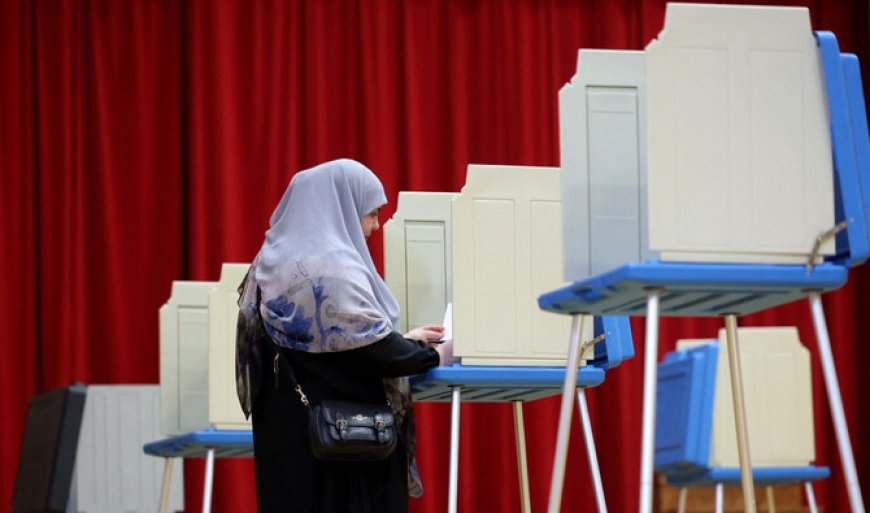Survey Shows 87% of Arab Americans Intend to Vote in U.S. Election, Highlighting Key Swing State Influence

A recent survey performed by Arab News in cooperation with YouGov finds that 87% of Arab Americans plan to vote in the 2018 U.S. presidential election, signifying a major growth in political activity within this community. The survey underscores the growing relevance of Arab Americans as a voting bloc, especially in swing areas like Michigan, where their presence could play a critical role in determining the election outcome.
Since 2016, Arab American voter engagement has gradually increased. In the 2016 election, 67% of polled Arab Americans voted, with this number climbing to 79% in the 2020 election. In 2024, the intention to vote has gone even higher, with only 6% indicating they do not plan to vote and 7% still unsure ahead of the November 5 election.
The survey indicates some demographic disparities in voting inclination. Arab American men have a higher likelihood of voting (92%) compared to women (81%), while women’s engagement has shown a noteworthy increase since 2016. Back then, 32% of Arab American women did not vote, a proportion that reduced to 26% in 2020. In 2024, only 11% say they will not vote, with 8% undecided.
Older Arab Americans are likewise more inclined to vote, with 90% of those over 55 years of age intending to do so, compared to 84% of those aged 18-34. Regional differences also appeared, with those living in the West (92%) and South (91%) expressing the strongest inclination to vote. The poll indicated that education and income levels played a factor, as 97% of respondents with post-graduate degree and 94% of those earning $80,000 or more per year expressed desire to vote.
A startling 80% of respondents stated they believe their vote matters, with males (86%) more confident in this than women (74%).
According to Firas Maksad, a senior scholar at the Middle East Institute, the Arab American vote is increasingly significant due to the community’s presence in pivotal swing states including Michigan, Georgia, and Pennsylvania. "In elections so tightly contested as they are today, not only at the general national level but in the pivotal swing states, the margin here is 0.5% one way or the other, and that makes the Arab-American vote a crucial constituency to win," Maksad explained on the Arab News podcast Frankly Speaking.
Historically, Arab Americans have felt that their votes held little impact, but this perspective is changing as their presence becomes more strategically crucial in tight races. The poll also finds that Arab Americans keep politically involved throughout the year, with 84% following political happenings either most (44%) or some of the time (40%).
As candidates strive to secure every vote in this closely contested election, the Arab American community is expected to play a vital role, particularly in states where even a little margin could tip the balance.













































